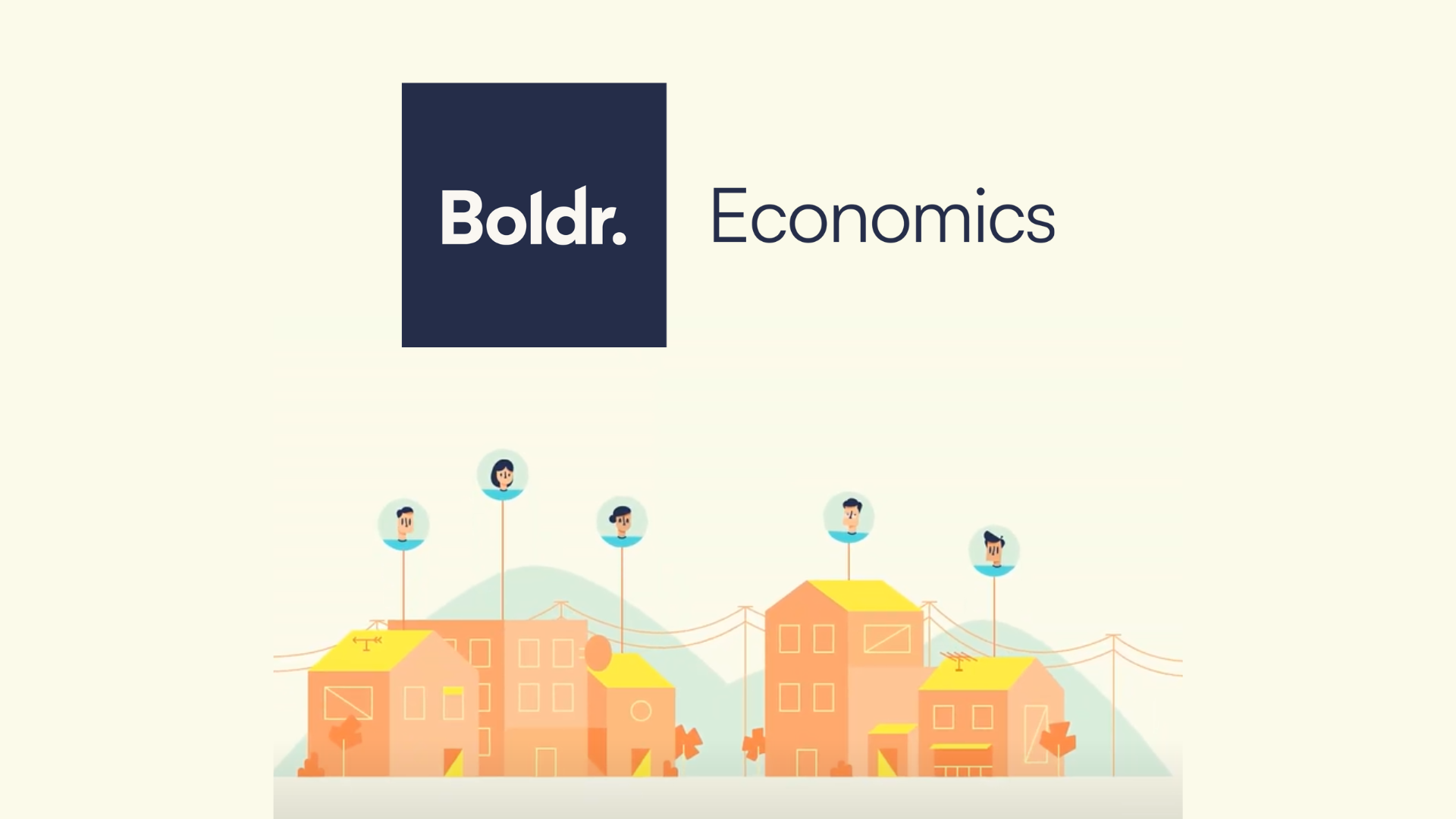As COVID-19 dominated headlines, our partners started asking more questions about how the work we were doing together was making an impact. On their team. On their bottom lines.
In response, and under Kat’s leadership, we doubled our insights team and expanded our capabilities around bringing insights to our clients and partners by using all available data to start answering their most pressing questions.
In 2021, we formally launched Boldr Insights to bring our approach to connecting work done to impact made, to market.
In 2018, working as a data scientist in a BPO company is not a usual sight, and associate-level data science roles in other local industries comprise only a small fraction of the job market.
In 2018, even with the rise of IoT, cloud computing, artificial intelligence, and machine learning, most companies in the Philippines weren’t ready to onboard data science-related roles.
Amid all this, in 2018, I was a young data scientist aspiring to hone my skills and build a professional career out of my passion.
Imagine the challenge that I was up for.
So, the excitement that I felt when I accepted an offer from Boldr to become their very first data scientist was out the roof.
Back then, there’s still a bad impression with BPO companies and how they treated their employees, so my friends and colleagues unapologetically questioned my decision to accept the job. I was on track to a successful career in a fast-growing tech company, and I chose to leave all that to join a startup BPO company.
A couple of months into my new role, I seriously doubted if I made the right choice.
Being in a young company with very limited experience with data and very few resources, I had to go through hoops just to avail of a data warehouse or to hire a new person. I also had to do a couple of other jobs that the company needed at that moment because we did not have the budget for a full-time data scientist.
It wasn’t a walk in the park, for sure. But now, almost three years in, I started to gain confidence and realized that joining Boldr was indeed the right choice for me.
Small Changes, Big Impact
I was a first-time manager when I joined Boldr. Naturally, this has its own challenges, especially for an introvert like me.
Surprisingly, my introspections together with the support that I receive from Boldr have equipped me to become a better leader. It wasn’t easy to build the team of my dreams, especially with all the skills gap in the country that even I experienced.
But with the right people and guidance from my mentors at Boldr, I saw my pioneer data science team unfold in my very eyes. One of the things I am most proud of is how they came from various different roles within the company. After showing interest in the field of data, they were given the opportunity to change paths and pursue the career they are truly passionate about.
Trained using DataCamp, they were assigned to projects which helped them learn the skills they needed to become the analysts they are today. I did have more than a couple of sessions with them to brainstorm, review code, debug and optimize, but not before they had a stab at it first. My training plan was to throw them into the pool, but be ready to jump in with a floater at a moment’s notice.
I’m so glad it worked.
Also read: Evolution of Business Process Outsourcing: From Tactical to Human-Centric
Having analysts coming from different departments of the organization turned out to be a silver lining. Because I admittedly do not have strong BPO experience before I joined Boldr, it was a fantastic experience to build a team that taught me things that I never knew I needed to know. See: Kat (that’s me!) utterly confused during a meeting and asking an analyst what FRT means. FYI, it means First Response Time.
This level of knowledge-sharing with my team helped me think of ways to optimize processes for the teams that they used to belong to. As I was building my dream Data Science Team, I was also learning a lot about Boldr’s Service Delivery Teams, which I’ve leveraged to implement more creative data solutions for the company.
Building a Better and Boldr Data Science Team
Working with my pioneer team gave me space to experiment, learn, and un-learn a lot of things about data science. It was in late 2019 that I fully took on the role of a Data Science Manager after going through a few different departments to fill in the need at that time.
It was then that we truly started building a data analytics team that brought value not only to Boldr, but to our client partners as well. We took the rest of the year in 2019, and a better part of 2020 (while all working remotely), to build out better reporting capabilities for our clients and team members.
This is when the magic happened. We understood the power of data and how it can transform Boldr’s value as an outsourcing service provider.
We finally found our ultimate purpose.
As COVID-19 turned the world upside down, we were faced with a greater challenge of leveraging data to create impactful solutions amid a pandemic. We realized we needed to scale up big time this time.
We found out pretty quickly that the skills and knowledge that we have gathered while building out reports gave us the capability to provide valuable business insights to our clients. The need for speed during the most critical times of 2020 fueled us to deliver beyond expectations.
- We worked with one of our clients in EdTech to understand the characteristics and behavior of their global user base within their platform.
- We helped a Chicago-based sports facility understand their customers’ lifetime value and shared valuable insights, which they used to improve their marketing campaigns.
- We conducted a sentiment analysis for a yoga studio franchising company to interpret the online reviews they get and gain actionable insights on how they can improve their service.
- We analyzed changes in industry trends during the pandemic to give our clients insights on how industry-wide and economic changes can affect their business and how they can pivot to maintain or enhance the quality of their services.
A clearer purpose meant more work for the team. But it also meant more opportunities for us to grow as data science professionals, and more opportunities for our clients to grow as data-powered organizations.
Fast forward to 2021, our team of data analysts has doubled from a year ago. With the power and responsibility of having access to many of our clients’ data, we are equipped to help Boldr and our clients make informed decisions based on trends, models, numbers, and business needs.
It was definitely a proud moment for me when we’ve taken a name and space within the company. My pioneer team of data geeks, which has been re-structured, refined, and tested through time, is now Boldr Insights—Boldr’s very own team of problem-solving, creative-thinking data scientists.
3 Pieces of Advice for Aspiring Data Scientists (from someone who’s been there, done that)
1. Knowing the technical aspects of data science is great, but knowing how to communicate ideas is just as important.
When I was starting, I thought that being a data scientist is the perfect job for me because I didn’t have to interact that much with other people and I’ll be dedicating a lot of my time analyzing data. Only to find out later on that after all the analyzing I had to do comes the greater challenge of communicating the results with people who need those insights.
As data scientists, we have to understand that we’re dwelling in a space where data insights speak its own language, and it’s our job to clearly communicate what these insights say. All the graphs and models you painstakingly extract from data are useless if your intended audience will not know how to use it.
So knowing how to answer why a specific type of analysis was implemented or why results were presented in a certain way, in a manner that is understandable to a non-technical audience is golden. Make sure to keep your reporting simple and always relate your presentation to the impact it will have on the business, and you’ll surely prove the worth as a modern-day data scientist.
2. Data science has no gender. Women can be powerful in tech.
My biggest fear in taking a more senior role in tech was predicated upon the idea that I’m just a woman in a man’s world. I was afraid that I would not be respected, but I came to find out that as long as I know what I’m doing, people do not care that I am a woman.
Even though data science is a male-dominated industry, do not let this lack of diversity stop you from pursuing a career in tech. Be confident, stand your ground, and crush that gender gap. Remember that interpreting big data still benefits from human touch, so in order to create algorithms that do not tolerate biases, there has to be a mutual presence among genders within the industry.
3. Never stop learning. Just don’t.
I first learned about data science through Andrew Ng’s online courses. Since then, I got hooked, took dozens of courses, and discovered something that I’m passionate to pursue as a professional career.
If it wasn’t for that desire for learning, I could have just dropped out of all those engagements. But I didn’t despite the challenges I experienced when I was starting as a self-taught data scientist. I’ll always look back to those early days with pride.
If you really want to take data science seriously, never stop learning. There is always something to learn in this field that is relatively new and constantly changing, and that is the challenge that you’ll be up for. Sign up to classes, know the industry influencers that you should follow, and keep on immersing yourself into new technologies in order to expand your knowledge and capabilities.
I’m thrilled to see what’s in store for the team. In case you need help with your data analytics, let us step in and create impactful data solutions for you. Know more about Boldr Insights and reach out to us today!


